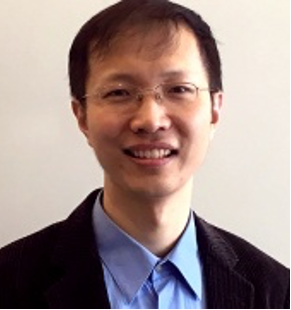Scalable, high-precision optoelectronic lab-on-a-chip towards next-generation precision medicine
3rd March 2021
Timing : 1 pm EST
For zoom link to the talks, please email mjgc@mit.edu with your institute email and mention affiliation
For a list of all talks at the NanoBio seminar Series Spring'21, see here
Guangyu Xu
Assistant Professor
Linda and Dev Gupta Professor, UMass Amherst
Dr. Guangyu Xu received his B.S. and M.S. degrees from Tsinghua University. In 2011 he received his Ph.D. in Electrical Engineering from UCLA, where he studied the variability effects in graphene electronics. Afterwards, Dr. Xu received his postdoctoral training in the School of Engineering and Applied Sciences at Harvard University and the Synthetic Neurobiology Group at MIT Media Lab, where he worked on all-electrical DNA arrays and multiplexed neuroimaging assays, respectively. He then joined ECE Department at UMass Amherst in 2016 as an Dev and Linda Gupta Endowed Assistant Professor, working with a vivid group of students in the area of biosensing, neuroengineering, nanobiotechnology, and bioinformatics, aiming to offer new tools and methods for important biomedical applications. His work is currently supported by NSF Brain Initiative, and recently recommended for the NSF CAREER award. He has been serving as a NSF, NIH, and Samsung Electronics panelist, and the technical program committee of IEEE IEDM on Sensors, MEMS and Bioelectronics.
Assistant Professor
Linda and Dev Gupta Professor, UMass Amherst
Dr. Guangyu Xu received his B.S. and M.S. degrees from Tsinghua University. In 2011 he received his Ph.D. in Electrical Engineering from UCLA, where he studied the variability effects in graphene electronics. Afterwards, Dr. Xu received his postdoctoral training in the School of Engineering and Applied Sciences at Harvard University and the Synthetic Neurobiology Group at MIT Media Lab, where he worked on all-electrical DNA arrays and multiplexed neuroimaging assays, respectively. He then joined ECE Department at UMass Amherst in 2016 as an Dev and Linda Gupta Endowed Assistant Professor, working with a vivid group of students in the area of biosensing, neuroengineering, nanobiotechnology, and bioinformatics, aiming to offer new tools and methods for important biomedical applications. His work is currently supported by NSF Brain Initiative, and recently recommended for the NSF CAREER award. He has been serving as a NSF, NIH, and Samsung Electronics panelist, and the technical program committee of IEEE IEDM on Sensors, MEMS and Bioelectronics.
